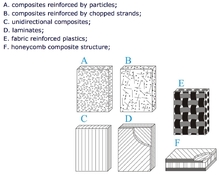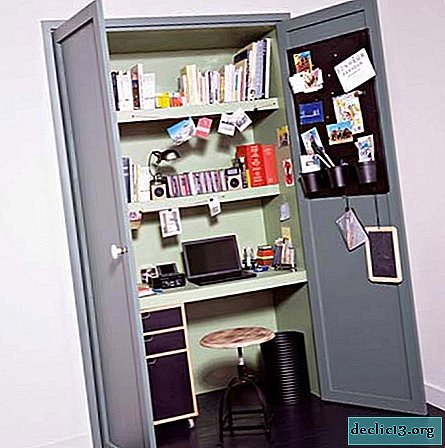Cleaning a clogged sink at home

All sinks are susceptible to clogging. The frequency of cleaning depends on the observance of the operating rules, technological problems and clogging substances. According to average statistics, the sink in the kitchen clogs up more often due to the ingress of fats and food debris.
There are many ways to clean the drain. Among them, folk remedies and household chemicals, appliances for domestic and professional use. Methods for eliminating blockages at home depend on the causes of their occurrence.
Causes of blockages

Blockages and unpleasant odors are formed for the following reasons:
- Mechanical - something is stuck inside the drain system (one large item or a large amount of small debris).
- Operational - the drain has not been cleaned for a long time and deposits have formed on its walls that impede the free passage of fluid.
- Technological - damage, clamping pipes, etc.
Mechanical blockages are the most common, as sink drains are not designed for rubbish. They are characterized by sudden occurrence and complete clogging of the system. Operational ones are manifested in the form of decreasing sewage drainage capacity.
Technological reasons make themselves felt immediately after the start of operation. But sometimes technical flaws appear after a short period of time. You can get rid of blockages in such cases after eliminating the shortcomings.
It is sometimes difficult to establish the exact cause of the blockage. It can be the result of several reasons at the same time. In this case, it is necessary to apply various methods in turn. First, pour boiling water into the pan (if there are metal pipes) or open hot water for 20 minutes (if the pipes are plastic). If this does not help, apply other means.
Work safety
Before starting work, ensure that precautions are taken. Use household chemicals and some folk remedies (acetic acid, etc.) in tight rubber gloves. Carefully use vinegar essence, which can cause burns. When using household cleaning products, study and follow the manufacturer's instructions.
Avoid contact with eyes and clothing with harmful substances. Chlorine products, in addition to negative effects on the skin and mucous membranes, leave stains on clothing. For people with allergies, it is advisable to use respirators or masks when using household chemicals or acids. It is required to ventilate the room.
Effective folk methods to eliminate blockages

Alternative methods are affordable and highly effective. They can be used independently, without involving plumbers. Despite the presence of a large number of household chemicals, alternative methods will always be relevant.
Soda and Vinegar
Baking soda and vinegar can be found in any kitchen. To apply the folk method, you do not need to spend extra money. Soda and vinegar take the second place in the efficiency of eliminating blockages in the sink after the plunger. Joint application enhances their effect.
Pour soda into the drain hole and fill it with vinegar essence in a 1: 1 ratio. During the reaction, a large amount of foam forms, which boils for several minutes with the release of gas with a specific smell (close the hole with a cork). After 20-30 minutes, turn on the hot water under pressure. Repeat if necessary.
Baking soda
Soda is used to cleanse with hot water. It is necessary to pour half a pack of soda with 10 liters of water, a temperature of 70 degrees. After it is advisable to use a plunger.
Citric and oxalic acids

Citric acid is also found in every kitchen. It is a mild and non-toxic agent for controlling blockages, limescale and rust. Due to its lower aggressiveness, citric acid is inferior to vinegar in its cleaning properties. To fix the problem, it is poured into the drain (at least 2 sachets), poured with a small amount of warm water and left overnight.
Oxalic acid is a potent drug compared to citric acid. It is used to remove limescale and rust from plumbing and urinary stone from toilets. To eliminate blockages of organic origin in the sink, oxalic acid is used in the same way as citric acid.
Alka-Seltzer tablets
Put two tablets of the drug in the drain hole and fill it with a glass of table vinegar (9%). This method helps with minor blockages in the siphon. Unpleasant odor is eliminated.
Other folk methods
Chlorine in any form ("White", etc.) can be used to remove blockage. Pour the product into the drain hole and leave it overnight.
An effective way to clean the siphon is to remove it and remove the trash. No special fixtures are required for this. The problem is the presence of a lot of dirt and an unpleasant smell, so this is not a job for the squeamish. Place a bucket under it before removing the siphon.
Video tipsMechanical cleaning methods
Consider mechanical cleaning using popular devices.
Plunger
A simple means to eliminate blockages in the sink is a plunger. Its advantages:
- Availability (inexpensive).
- Versatility (can be used in sinks, bathrooms and toilets).
- Functionality (eliminates most of the problems).
- The possibility of many years of operation without unnecessary costs (quality products last forever).
- Ease of use (only physical strength is used, no need to connect to an energy source).
Having bought it, you can save on plumbing calls. Disadvantages:
- Low efficiency with operational and technological causes of blockage.
- It does not cope completely with severe clogging.
- It is necessary to actively use physical force, sometimes for a long time.
Method of application: pour water into the sink, attach a plunger to the drain hole, vigorously press several times.
Vacuum cleaner with blow function

If the house has a vacuum cleaner with a blow function, you can use it. It is necessary to fix the pipe of the vacuum cleaner in the drain hole, laying cracks around with rags, then turn on the vacuum cleaner in blowing mode for several minutes.
Brush
To clean the blockage, a special ruff is used, with which you can pull the garbage out of the siphon without parsing it. Ruff is inserted through the drain hole and fishes out the garbage using its mechanism. A magnet is built into the fixture that removes metal objects from the pipes.
Plumbing cable
You can buy a cable for independent use or call a plumber with it. The device eliminates blockages located deep in the pipes. The longer the cable, the more likely it is to reach the clogging site. This method is especially effective for mechanical blockages. The cable is inserted into the pipe and inserted into it to the desired place by scrolling with the handle.
Hydraulic pump
Hydraulic pump - professional plumbing equipment. Eliminates blockages with high pressure water flow. The method is effective and environmentally friendly. The disadvantage is the high cost.
Video plotPopular household chemicals - examples and instructions
You can use household cleaning products to clean the sink drain. Liquid preparations are more effective than powdered ones. When using them, there is no need to disassemble the siphon. Household chemicals out of the box are already ready for use and do not require special preparation.
- "Mole". The most common remedy. It happens in liquid, gel and dry form (granules). Advantages in the quick elimination of blockages and budget price. The main disadvantage is the harmful composition. Method of application: pour (pour and pour a small amount of water) into the drain hole for 15 minutes - 1.5 hours.
- "Tiret" ("Tiret"). Has a lot in common with the "Mole", but costs more. When applying, you must first pour the product, and then pour slowly boiling water (5-6 glasses). Under the action there is a violent reaction. Applicable only for metal pipes.
Eliminating odors from the sink

There are two most common causes of the unpleasant odor from the sink.
- The smell from the sink may appear due to improper installation of the drain pipe (lack of bending in the shape of the letter U or S). In this case, the error must be eliminated.
- Offensive odor is a consequence of clogging. Solving the problem should fix the situation.
Useful tips and prevention
Observe the operating rules for the drainage system and prevent debris from entering it. Clogging can be prevented by installing an extra screen in the sink that needs to be cleaned after washing the dishes. Periodically, you need to remove the siphon and clean it from waste and deposits.
To prevent the occurrence of limescale and rust, the sink should be regularly treated with soda, citric or oxalic acid, as well as appropriate household chemicals. For these purposes, the product is applied to a problem place and left for a while to loosen the plaque. Household chemicals act faster than folk methods.

















